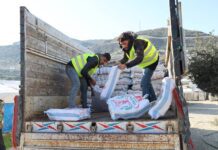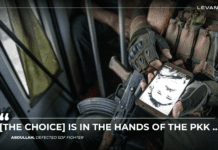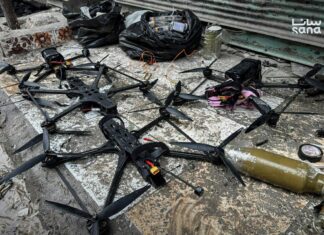
Following an official announcement for employment by the Interior Ministry regarding the creation of a new law enforcement branch, Hisbah, and the implementation of new laws, many have become curious about the nature of this initiative.
L24 acquired a copy of the legislative draft from a source within the Interior Ministry. Upon inquiring about the file, an official from the Syrian Salvation Government (SSG) told L24: “The file was leaked in an incomplete form, and it is not the final version. The legislation is still under review and will be edited, and a final official version will be released upon completion and approval by the Interior Ministry.”
In addition to the Interior Ministry’s official announcement of the employment of a new law enforcement branch, Hisbah, tasked with patrolling public spaces and ensuring compliance with the newly proposed laws, Police Chief Abu Yasin revealed that there will be three divisions for the Public Morality Police at the launch: Idlib Center, Salqin Center, and Dana Center. Moreover, plans for additional departments to be established later are underway, indicating a comprehensive approach to the implementation of this initiative.
According to Abu Yasin, the bill was first drafted by the Ministry of Awqaf and considered the legal aspects before it was submitted to a committee of the Ministry of Interior for a detailed review. After the review, the draft was forwarded to the General Shura Council for further consideration and then to the Supreme Fatwa Council for its final review. Finally, the law was approved through this rigorous and collaborative process, ensuring its legal certainty and compliance with established procedures.
The SSG’s newly proposed Hisbah branch aims to uphold public morals and social values in the northern regions of Syria under its administration. This initiative comes as part of the government’s efforts to maintain order and preserve cultural and religious norms within the community.

According to the legislation, the Hisbah are tasked with monitoring issues related to public facilities, public transportation, markets, restaurants, cafes, parks, and road conduct. The law establishes guidelines for behavior in these areas, including dress codes, noise levels, and the prevention of certain activities without permission, such as filming, photographing, and hosting events such as celebrations. Additionally, it prohibits reckless driving, certain advertisements, littering, unauthorized livestock grazing, and unauthorized celebrations in public facilities without a license.
According to the legislation, the police are tasked with monitoring road media, means of entertainment, and other public spaces to ensure compliance with established moral standards. However, it is important to note that they do not have the right to conduct searches, eavesdrop, spy, or enter private residences, and are prohibited from entering homes or inspecting shops and vehicles.
Furthermore, the legislation specifies the role of judges in handling detainee statements, judicial rulings, and the fate of detainees, detained persons, and closed stores. It also emphasizes the importance of maintaining confidentiality and destroying police records and reports at the beginning of each year.
In addition to outlining the duties of the Hisbah, the legislation also includes final provisions that require public and private entities to cooperate with the police concerning their work. Each police station is mandated to have preachers and advocates assigned to raise awareness of violators and detainees, and to advise and guide them. Moreover, the legislation prohibits police employees from speaking about violators in a way that harms their reputation, under penalty of accountability.
It has been noted that many of the articles in the bill contain vague, ambiguous, or broad terms, that could allow abuse, as they lack concise language and clarity, leaving them open to individual interpretation. In addition, some fear the establishment of such an organization could repeat the failures of similar initiatives in the past or lead to extremism.
The Ministry of Interior, with the approval of the Supreme Council for Fatwa, oversees the implementation of this new law enforcement branch. The Ministry is responsible for issuing necessary circulars and instructions for the enforcement of the law, and the law itself will be published in the Official Gazette of the SSG. This new initiative is intended to play a role in maintaining public order and promoting a sense of community well-being in the regions under the SSG administration, after years of dissatisfaction from locals in regards to religious violations in the community.








